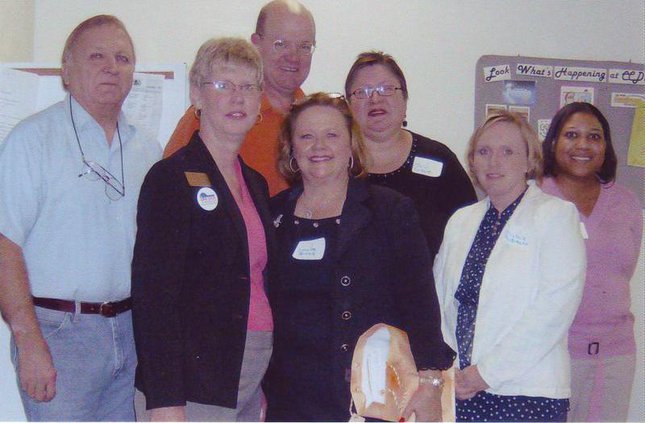At least seven Effingham resident advocates attended a town hall meeting in Savannah on Monday night at the Coastal Center for Developmental Disabilities on Eisenhower Drive.
The meeting was to bring information to local residents about independent living services for people with developmental disabilities who often are deemed incapable of living on their own. Often these people either remain in their parents’ homes or are placed in a nursing home.
Steve Hall, director of developmental disabilities under the Georgia Department of Human Resources, said that Georgia remains behind the times and devotes less money to services than any other state in the nation.
Money aside, the importance of quality of life is the real issue, advocates say, especially for young people, independence could mean a fuller life, a feeling of accomplishment and an opportunity to reach their full potential.
Hall said Georgia is going to start treating people with developmental disabilities like real Americans, who have real jobs, real homes, real friends and a real life.
One parent lamented that her child has done great at a training program at Warm Springs and his time is up for that program. She said that he is not finished with his education, but that there is nowhere for him to continue his education because of the criteria for admission into technical school or college, and she does not want to see him bagging groceries for the rest of his life.
Nancy O’Hara from the state Department of Education, division of exceptional children talked about the importance of the school system working with the DHR and Department of Labor concerning transitioning students from school to the community in a meaningful way.
When asked if all the school systems are getting the same message about transition she answered, “Yes, they are all getting the same message, but the amount of passion a school system has about transition may not be the same.”
The question was prompted by the fact that there were few school representatives present. O’Hara talked briefly about some new ideas being discussed that will give students from 19 to 22 years old the opportunity to continue schooling with the local school systems while being in a different facility and possibility living in a dorm like setting which would be a more adult like setting, before going on to become more independent.
Many in the audience commented that this idea sounded great, while others said that many other states have been doing this for more than 20 years and wanted to know why Georgia is taking so long to implement this type of program for young people.
Dave Blanchard of the Atlanta Alliance on Developmental Disabilities spoke about funding for these services and ways that advocates and interested persons could help to UnLock the Waiting list by writing letters to the governor and remind him that there are over 6,000 people waiting for home and community based services.





